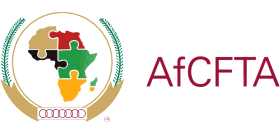 Nwabunike Highlights AfCFTA as Key to Nigeria's Economic Growth
Nwabunike Highlights AfCFTA as Key to Nigeria's Economic Growth
Hon. Tony Iju Nwabunike, the immediate past President of the Association of Nigeria Licensed Customs Agents (ANLCA), has emphasized that the African Continental Free Trade Area (AfCFTA) presents a remarkable opportunity for Nigeria's economic growth.
However, he cautioned that the nation must take decisive actions to fully capitalize on its advantages. Speaking at the Association of Maritime Journalists of Nigeria (AMJON) 2024 annual conference in Lagos, Nwabunike noted the importance of Nigeria’s large population of over 223 million, positioning it as a crucial player in the AfCFTA framework.
He stressed that to effectively leverage this trade agreement, Nigeria must confront various challenges, including border modernization, enhanced security, and improved trade infrastructure. Nwabunike stated, “We are increasing our exports, but not at a rate that matches our high import levels. Nigeria has the potential to become the 'China of Africa' in production.” He pointed out that other African nations are actively striving for political, economic, and social advancement, and Nigeria must seize the opportunity to participate prominently in this vast market. Currently, Nigeria lacks smart borders, which are vital for trade and migration. Nwabunike criticized the slow progress in modernizing these borders, stressing that the federal government must improve its efforts for national security and efficient monitoring of goods and people.
He also highlighted the importance of strengthening diplomatic ties with neighboring countries, particularly Niger, to enhance trade cooperation. The Trans-Saharan Gas Pipeline project, which aims to link Nigeria’s gas fields to Europe via Algeria, requires collaboration among Nigeria, Niger, and Algeria. Nwabunike further advocated for the liberalization of Nigeria's visa policies to facilitate travel and trade across Africa. He praised President Bola Tinubu's recent negotiations for a softer visa regime with South Africa and urged similar efforts with other African nations outside the ECOWAS region. This approach could reduce travel time and costs, allowing Nigerian traders to access broader markets.
To improve Nigeria's export readiness, he recommended that the Nigerian Ports Authority (NPA) allocate more space for exports and revitalize underutilized ports like Burutu, Sapele, Koko, and Calabar. “These maritime infrastructures are essential for today's Nigeria and can serve the greater interests of Nigeria and Africa in the AfCFTA landscape,” he concluded. Nwabunike asserted that Nigeria could emerge as the top beneficiary of AfCFTA if it addresses electricity challenges for industrialization and ensures safer conditions for farmers and cross-border traders.
